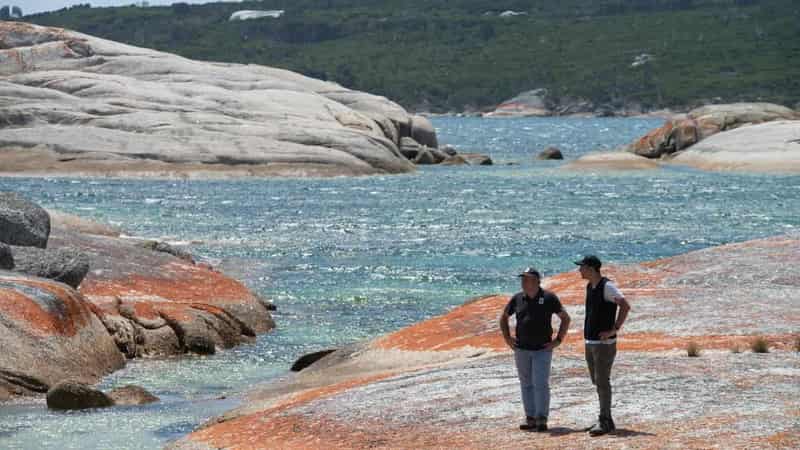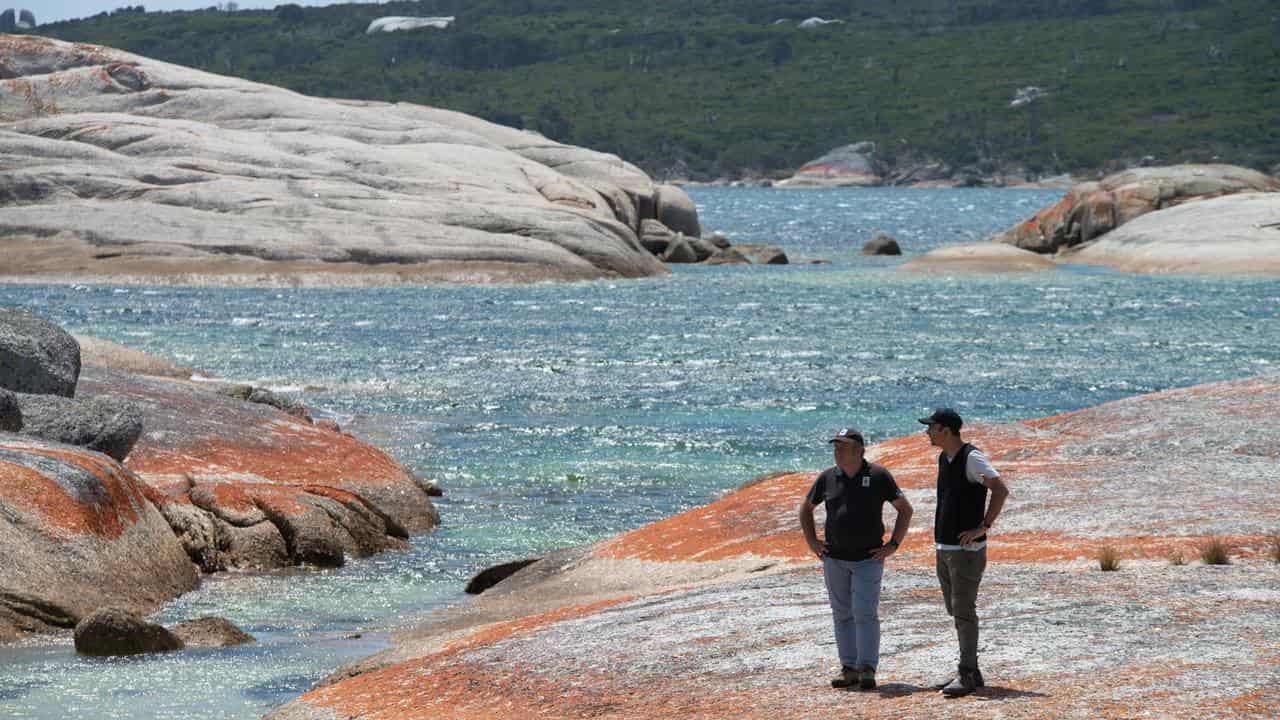
Wombats, wallabies, long-nosed potoroos, white-footed dunnarts and marsupial mice once thrived on lungtalanana in Bass Strait.
But since colonisation the 82-square-kilometre island off Tasmania's northeast tip has been plagued by pests including feral cats.
Five nights of recent trapping only detected three native species - an eastern banjo frog, a common eastern froglet and a mountain heath dragon.
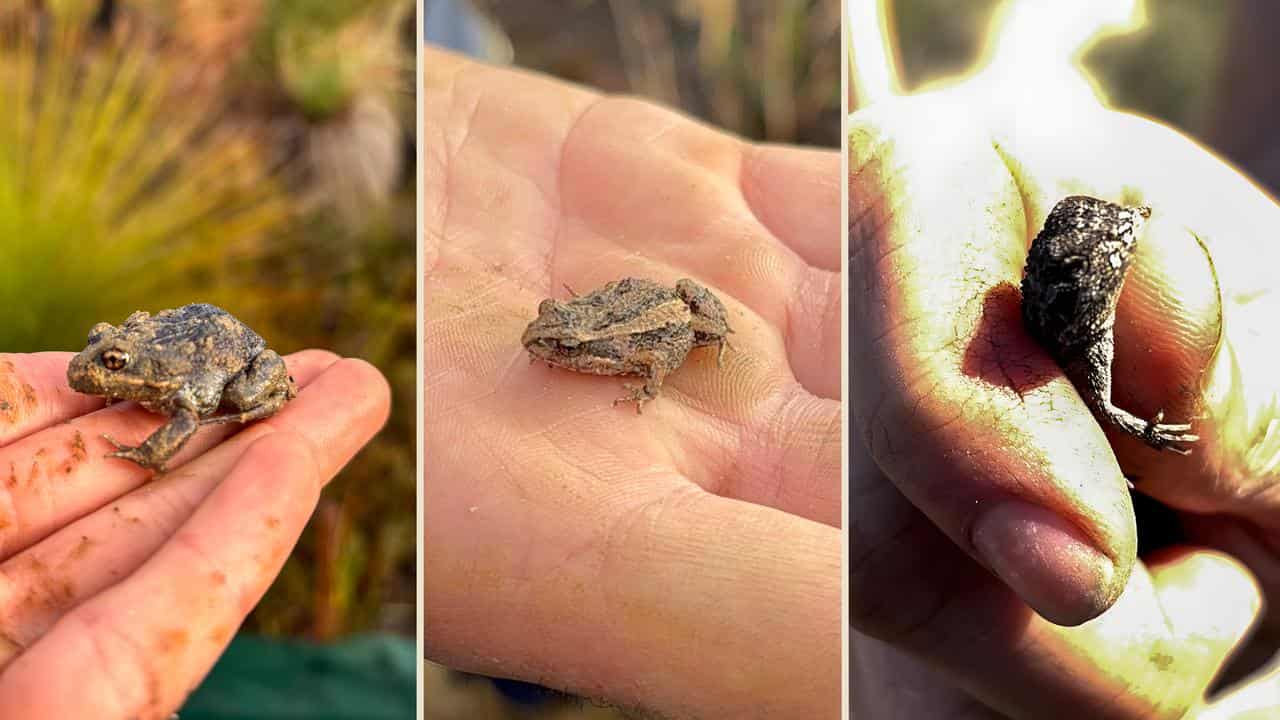
The Tasmanian Aboriginal Centre (TAC), World Wide Fund for Nature Australia and University of Tasmania are working to restore the island to its former natural glory.
Andry Sculthorpe, a pakana man and land and heritage coordinator with the TAC, said survey results had been essentially the same for several years.
"(Our) modelling is about 80 cats - that's a decent amount for an island that size," he says.
"Plus they have the ability to rapidly breed."
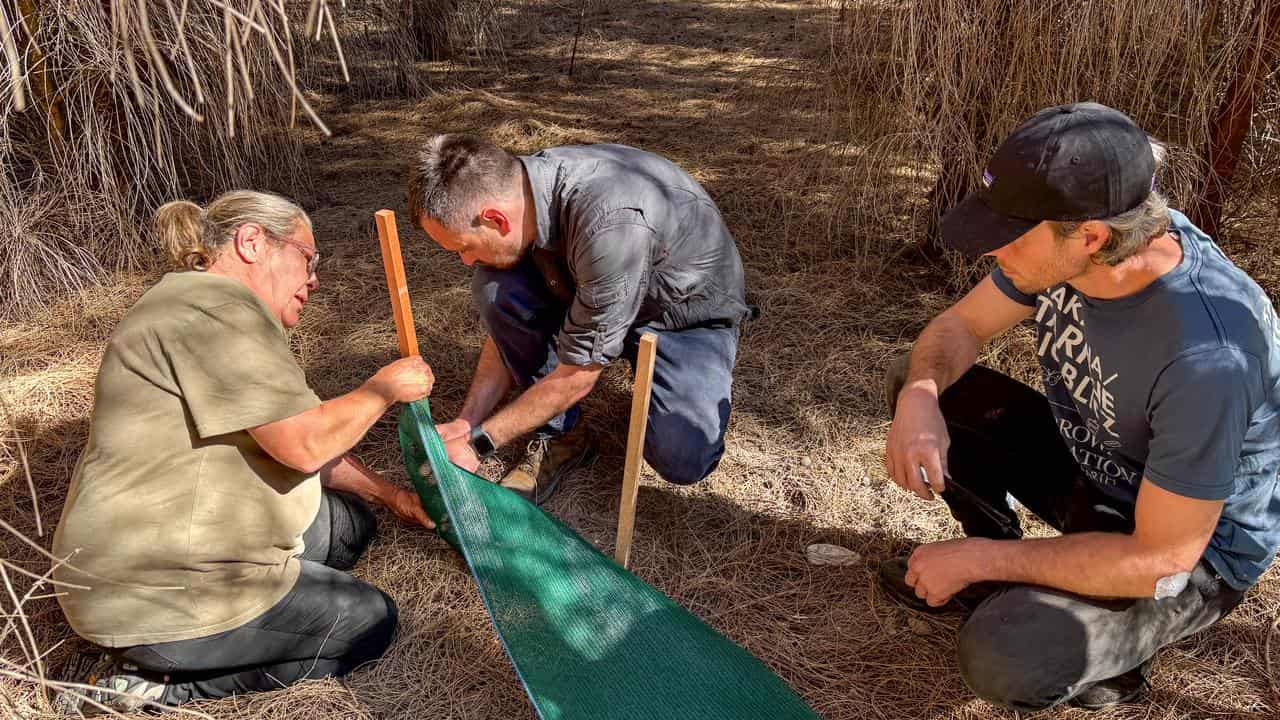
Lungtalanana, also known as Clarke Island, was damaged by thousands of grazing livestock, a lack of cultural burning and bushfires.
The island, one of about 100 in the Furneaux group, was returned to the Aboriginal community in 2005.
The only plentiful native mammal remaining is the red-bellied pademelon, while a native water rat is also present according to lakeside tracks.
There are plans to repatriate wombats, wallabies and potoroos in 2025.
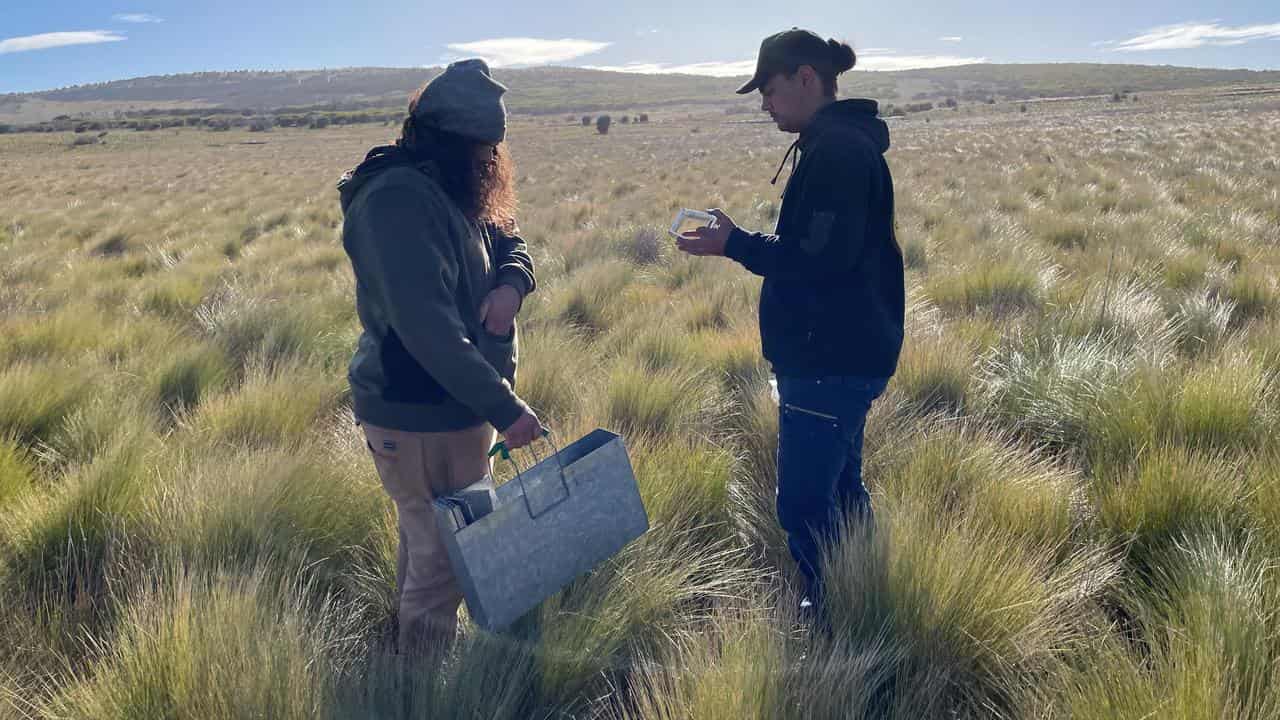
But Mr Sculthorpe warns the presence of feral cats poses risks and essentially rules out the prospect of re-introducing smaller marsupials.
"We don’t want to put them on the island with the cat population the way it is because they’ll just be fodder," he said.
"The second issue is ... larger wombats and wallabies could make cat control difficult because they could inadvertently interfere with (cat) trapping.
"(We) would be limited to larger species and there is still a risk. No matter what sized animal you've got, the babies are still going to be vulnerable."
Patrick Giumelli, threatened species manager at the World Wide Fund for Nature, says a sub-species of wombat found only on Flinders Island could be returned while introduced predators are present.
"They’re quite resilient animals," he said.
"Their digging would improve soil conditions and their burrows could provide a refuge for other species during fires."

The island is an Indigenous Protected Area and receives federal government funding for Aboriginal ranger land management.
Mr Sculthorpe says the TAC has unsuccessfully applied for more money for feral cat eradication he estimates would cost $1 million over four years.
A spokeswoman for the federal environment department said project proposals submitted under the Natural Heritage Trust process were competitively assessed.
"The funding opportunity was heavily oversubscribed and, therefore, not all projects could be funded," she said.
"The department has met with the Tasmanian Aboriginal Centre ... to provide feedback on the project proposal."
The TAC has received more than $4.1 million in long-term funding for the management of eight Indigenous Protected Areas since 2018, the spokeswoman said.
Mr Sculthorpe said lungtalanana was significant for several reasons.
"It provides a base for community to go to practise culture, it provides employment opportunities, it contains significant natural resources," he said.
"There is history there … and use of those islands pre-invasion and also post-invasion from the fact people were exiled (there)."
